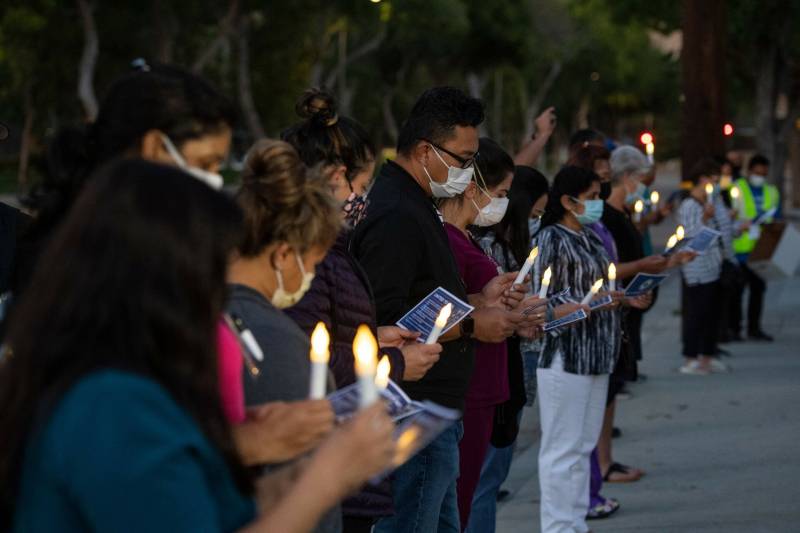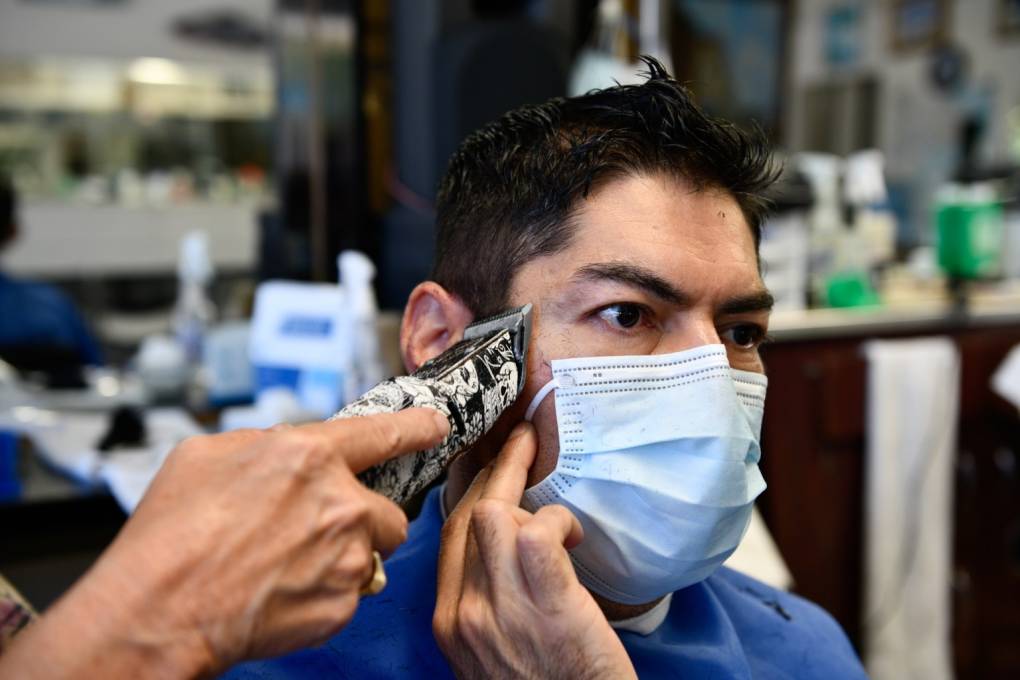For Gina Vitelli, who lost her father to COVID-19 last December, California’s so-called return to pre-pandemic normal will never really be possible.
Vitelli, who is based in Los Gatos, is a member of COVID Survivors for Change, a grassroots, nonpartisan group of COVID survivors across the country. The group aims to help survivors find ways to use their experiences to drive policy and cultural change.
Vitelli, 53, said she wishes people would be a little bit more empathetic during this time of reopening.
“A lot of what I see today on our support page is that people are just having an incredibly rough time having to listen to ‘going back to normal,’ ” she said. “For us it will never be the same. My dad lost his life in a very horrific way.”
When people talk about COVID so casually, she said it feels demoralizing.


